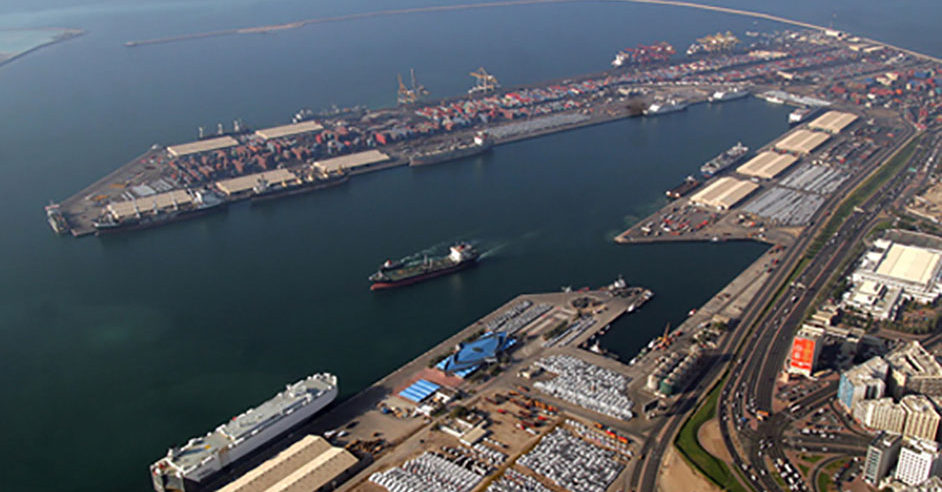The Marine Environment Protection Committee (MEPC) met for its 83rd session in person at IMO Headquarters in London (with remote participation enabled) from 7 to 11 April 2025. The meeting was chaired by Dr. Harry Conway (Liberia), with Mr. Hanqiang Tan (Singapore) as Vice-Chair.
MEPC 83 highlights:
- Tackling climate change – Mid-term measures to reduce GHG emissions from international shipping approved
- Review of the short-term GHG reduction measures – Phase 1 completed
- Report on the annual carbon intensity and energy efficiency of the fleet
- Onboard Carbon Capture and Storage (OCCS) and other energy efficiency matters
- Addressing marine plastic litter – Action Plan approved
- North-East Atlantic Ocean Emissions Control Area approved and Particularly Sensitive Sea Areas off Peru agreed in principle
- Review of the Ballast Water Management Convention – ongoing
- Air pollution prevention – various developments
- Amendments to NOx Technical Code adopted
- Pollution prevention and response – actions taken
- Reports from other Sub-Committees approved
- New outputs approved
- Tackling climate change – Mid-term measures to reduce GHG emissions approved
The IMO Net-Zero Framework includes a set of “mid-term measures” aimed at reducing greenhouse gas emissions from international shipping, in line with the reduction targets set out in the 2023 IMO GHG Strategy. These measures consist of:
- a technical element: a goal-based marine fuel standard designed to gradually lower the GHG intensity of marine fuels; and
- an economic element: a pricing mechanism for maritime GHG emissions.
Food security
The Committee agreed that in the period between the adoption of the IMO Net-Zero Framework and its entry into force, further assessment (qualitative and quantitative, as appropriate) of the potential impacts of an increase in maritime transport costs on food security resulting from the adopted framework should be conducted. The Committee agreed to keep the potential impact on food security under continuous review.
- Review of the short-term measure to reduce GHG emissions – Phase 1 completed
The review of the effectiveness of the short-term measures began in July 2023 (MEPC 80). Under Phase 1, the Committee gathered data from Member States about their experience implementing the short-term measures, analyzed this data and identified a list of challenges and/or gaps. At MEPC 83, the Committee took the following actions:
- Carbon intensity (CII) reduction factors for 2027-2030 – amendments adopted
- Access to the IMO Data Collection System for ship fuel consumption – amendments approved
- Workplan for Phase 2 of the review of short-term GHG reduction measures agreed
- Ship Energy Efficiency Management Plan (SEEMP) framework – amendments adopted
- Report on the annual carbon intensity and efficiency of the fleet
The report also indicated that, compared to 2008 levels, the average carbon intensity of shipping in 2023 has fallen by 31.0% (calculated based on supply measurement) and by 36.5% (based on demand measurement).
- Onboard Carbon Capture and Storage (OCCS) and other energy efficiency matters
The Committee adopted new Guidelines for testbed and onboard measurements of methane (CH4) and/or nitrous oxide (N2O) emissions from marine diesel engines.
The Committee re-established the Correspondence Group on Measurement and Verification of Non-CO2 GHG Emissions and Onboard Carbon Capture, and tasked it with the following:
- further develop the framework for the measurement and verification of actual methane (CH4) and nitrous oxide (N2O) emission factors and fuel slippage values for marine diesel fuels;
- develop a regulatory framework for the use of onboard carbon capture and storage using the approved work plan; and
- submit a written report to MEPC 84.
- Addressing marine plastic litter from ships – Action Plan adopted
The 2025 Action Plan is expected to be eventually combined with the Strategy to Address Marine Plastic Litter from Ships in a single resolution at a later date, after the Strategy has been reviewed and updated by the PPR Sub-Committee.
With regard to the carriage of plastic pellets in freight containers by sea, the Committee noted that PPR 12 included a dedicated action for the development of mandatory measures to reduce the environmental risks of plastic pellets transported by sea in freight containers in the above 2025 Action Plan.
- North-East Atlantic Ocean Emissions Control Area approved and Particularly Sensitive Sea Areas off Peru agreed in principle
The Committee agreed in principle to the designation of the “Reserva Nacional Dorsal de Nasca” (Nasca Ridge National Reserve) and the “Reserva Nacional Mar Tropical de Grau” (Grau Tropical Sea National Reserve) as Particularly Sensitive Sea Areas (PSSAs). The Committee invited Peru to further develop the proposed associated protective measures and submit them to MEPC for consideration and approval at MEPC 84.
- Addressing harmful aquatic organisms in ballast water – BWM Convention review ongoing
The Committee re-established the Correspondence Group on Review of the BWM Convention to finalize draft amendments to mandatory provisions of the Convention (regulations and appendices in the Annex to the Convention, and BWMS Code) for submission to MEPC 84 for approval, with a view to adoption by MEPC 85. The revision of existing and development of new guidelines are expected to be completed ahead of the amendments’ entry into force.
- Air pollution prevention – various developments
The Committee noted an update from the Sub-Committee on Pollution Prevention and Response (PPR) on regulating the discharge from EGCS or “scrubbers”. Interested Member States and international organizations were invited to submit new proposals on regulatory measures addressing the matter to PPR 13 in early 2026.
The Committee requested the re-establishment of the GESAMP Task Team on EGCS to develop a standard methodology for the development of data sets and calculation of emission factors for use in the environmental risk assessment of the discharge water from EGCS, with a view to reporting its findings to PPR 13.
Black Carbon emissions
The Committee noted the ongoing work on the concept of “polar fuels” (fuels that are most suitable for use in the Arctic to minimize environmental impact) and extended the target completion year for this output to 2027, to allow additional time to further develop the concept.
Nitrogen Oxide (NOx) emissions
The Committee adopted the 2025 Guidelines on Selective Catalytic Reduction (SCR) Systems. SCR systems are active emission control technology systems used to reduce NOx emissions.
- Amendments to NOx Technical Code
- use of multiple engine operational profiles for a marine diesel engine, including clarifying engine test cycles (expected entry into force 1 March 2027);
- certification of an engine subject to substantial modification or being certified to a tier to which the engine had not been certified at the time of its installation (expected entry into force 1 September 2026).
- Pollution prevention and response
- approved Interim guidance on the carriage of blends of biofuels and MARPOL Annex I cargoes by conventional bunker ships;
- approved Guidance on in-water cleaning of ships’ biofouling; and
- adopted amendments to the 2023 Guidelines for the development of the Inventory of Hazardous Materials, clarifying the relevant threshold in respect to cybutryne when samples are taken directly from the hull or from wet paint containers. The inventory is a key requirement under the Hong Kong International Convention for the Safe and Environmentally Sound Recycling of Ships.
- Reports of other Sub-Committees
- Casualty analysis reports and derived statistics
With regard to the outcome of the analysis of six Consolidated Audit Summary Reports (CASRs) containing lessons learned from 82 audits conducted under the IMO Member State Audit Scheme (IMSAS) between 2016 and 2022, the Committee concurred with the decisions of MSC 109 to:
- endorse the outcome of the analysis regarding the five main areas of recurrent findings and observations identified;
- endorse the outcome of the analysis regarding the most recurrent references recorded, which identified a lack of effective implementation of mandatory IMO instruments;
- concur with the four main areas of root causes, indicating reasons for the shortfall in the effective implementation and enforcement of mandatory IMO instruments and the audit standard, including specific issues/difficulties under each area.
- Draft Code on Alerts and Indicators, 2025
The draft 2025Code provides updated general design guidance and promotes uniformity for alerts and indicators required by the International Convention for the Safety of Life at Sea (1974 SOLAS Convention). It reflects updated instruments and new developments in the industry since the 2009 Code on Alerts and Indicators was adopted by resolution A.1021(26).
- New outputs approved, including development of a legally binding instrument on biofouling
- Development of a legally binding framework for the control and management of shipsʹ biofouling to minimize the transfer of invasive aquatic species;
- Assessment of the implementation of the Hong Kong Convention through an experience building phase and development of clarifications and amendments to the Convention;
- Review and amendment of the NOX Technical Code 2008 to provide a means for certification of engines that operate on non-carbon-containing fuel or mixtures of carbon-containing and non-carbon-containing fuels; and
- Development of guidelines for the management of ammonia effluent generated by ships using ammonia as fuel. Source: IMO




